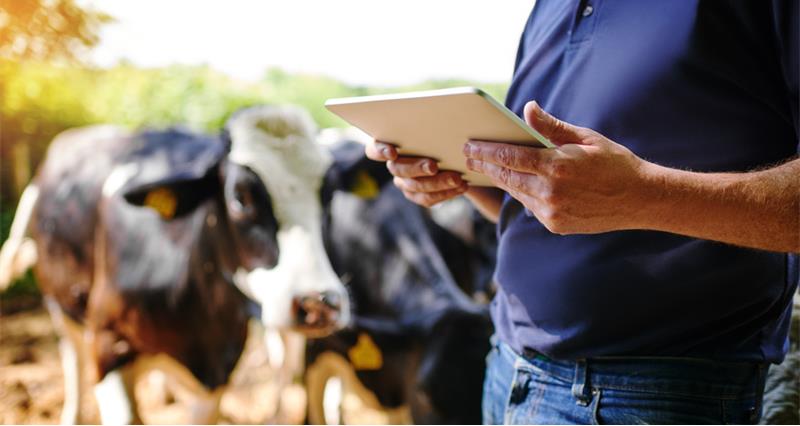Precision livestock technologies provide an opportunity to increase productivity on farm, support animal health and welfare and improve sustainability. These may take the form of collars, pedometers or wall mounted cameras that provide data to the farmer.
As part of its research, the Social Market Foundation conducted semi-structured interviews with ten livestock farmers comprised of dairy, sheep, cattle, and poultry farm types, as well as holding a roundtable with industry experts, policy specialists and academics to find out what the benefits and barriers to these technologies may be. The research was then shared by the APPG for Science and Technology in Agriculture.
What does the research say?
- Generally, British farmers recognised the benefits of new technologies and were open to using it.
- Evidence of the benefits of a technology from trusted, local sources was most likely to persuade a farmer to invest. Demonstration and inspection of the technology in person was particularly valuable.
- Uncertainty about the future of farming significantly hindered investment in technology.
- The biggest barrier to uptake of new technology was the cost.
The research highlighted the benefits of investing in technology, which included increased productivity, reduced labour costs and improved animal welfare. However, farmers also stated that they weren’t using technology to its full potential, and indicated the frustrations with getting different technologies to work effectively together.
The majority of farmers were open to using new technologies but felt that the costs, in addition to uncertainty about the future of farming was a major barrier to investment.
To read the full results, visit: APPG-agscience.org | Moovin' on up
Lack of certainty
A clear message from the research was that the lack of certainty about future farming policy was a major barrier to investing in new technologies. Participants highlighted that they were unable to make long term plans for their business, meaning that large investments couldn’t be justified.
The report also made recommendations of how uptake and use of precision technology on farms could be improved by policymakers. The top recommendation was to improve funding incentives, for example, by increasing productivity focussed grants.
Other recommendations included facilitating better knowledge exchange, improving the infrastructure for data sharing and using regulation to encourage change.
NFU position
The NFU is a key supporter of the APPG for Science and Technology in Agriculture’s work and fed policy expertise into this report.
NFU chief science adviser, Dr Helen Ferrier identified science and innovation as being “at the heart of farming and absolutely vital to help us deliver everything required of the sector”.
“British farmers need every tool in the box to tackle challenges such as climate change, diseases, resource use efficiency and nutrition, so the NFU encourages increasing the availability of and access to precision technology for livestock,” Helen concluded.
Read the report in full at: APPG-agscience.org | Moovin' on up
